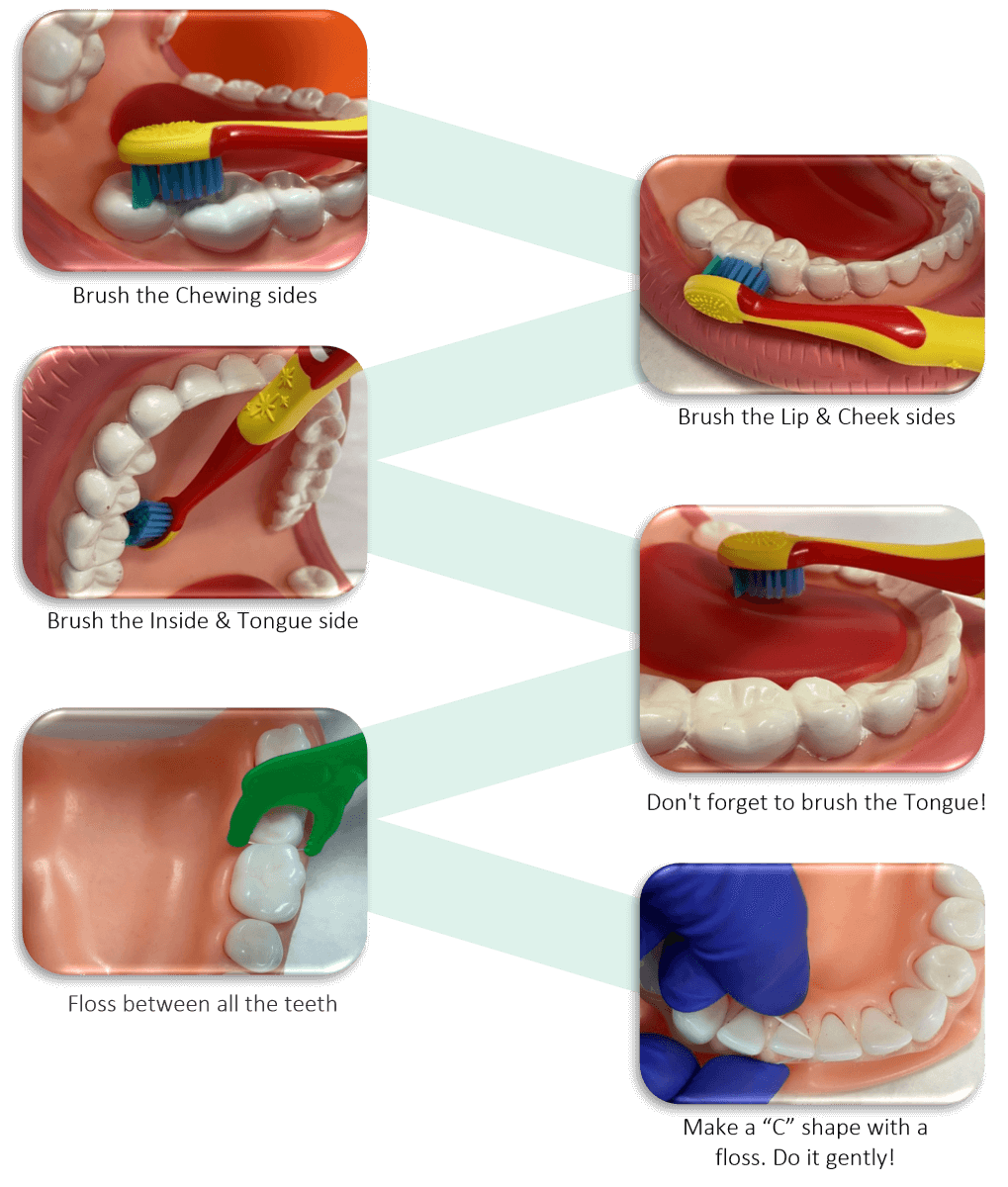Pediatric Dentistry
Dental Care for your baby
Caring before tooth eruption
Even before your baby’s first tooth appears, the gums can benefit from your careful attention. After feeding, wrap one finger with a clean, damp washcloth or piece of gauze and gently rub it across your baby’s gum tissue. This practice both clears your little one’s mouth of any fragments of food and begins the process for building good daily oral care habits.
Baby’s First Tooth and Dental Home
When that first tooth makes an entrance (usually around 6 months), it’s time to use a baby toothbrush. Dr. J recommends any soft-bristled toothbrush with a small head and brushing should be done at least once a day at bedtime. At this stage, use only a tiny amount of fluoridated toothpaste (the size of a grain of rice).
When the first tooh appears, but no later than his/her first birthday is the perfect time to meet up with Dr. J to establish a dental home.
Dr. J will look for any signs of early problems with your baby’s oral heath, and check in with you about the best way to care for your little one's teeth.
Dental Care for your toddlers
Make Brushing and Flossing Fun
Try different tactics to make brushing fun: flavored toothpaste, a toothbrush with a favorite character on it, or singing songs about brushing. Brushing should be done twice a day and parents can begin flossing for their children when any two teeth are touching. Once children are 3 to 6 years old, a pea-size amount of fluoride toothpaste can be used.
Evaluating for any Habits
Sucking on a thumb, finger and pacifier for a prolonged periods of time may cause some teeth biting problem. Most children stop the habit on their own, but can be difficult. Dr. J may share some creative ideas and recommendations.
Prevention is the Key
Preventive dental care is important throughout life, especially at a young age. By practicing good oral hygiene at home and scheduling regular checkups every six months, your child can help keep their smile bright and healthy for many years to come.
How to Brush and Floss

Fluoride Treatment
Fluoride has proven to be an effective tool in preventing and controlling dental cavity for pediatric patients. Fluoride is a mineral naturally found in a variety of foods and water.
Fluoride is effective in preventing tooth decay by protecting teeth from breakdown by bacteria (surgar bug) and restoring of healthy minerals on the tooth's surface. We recommend fluoride treatments twice a year along with cleanings to keep teeth their strongest.
Protective Mouthguards
Protecting your child’s smile while playing sports is essential. Sports related injuries to the mouth and jaw are some of the most common injuries received by athletes. Our goal is to help minimize your child’s chances of a sports related injury to his smile. Be sure to ask Dr. J about mouthguards at your child’s next dental checkup.
Mouthguards help protect teeth and gums from injury. If your child participates in basketball, boxing, hockey, football, gymnastics, lacrosse, martial arts, racquetball, rugby, track and field, skateboarding, skiing and snowboarding, skydiving, soccer, surfing, volleyball, water polo, weightlifting or wrestling, it is recommended by the American Dental Association that a mouthguard is worn.


